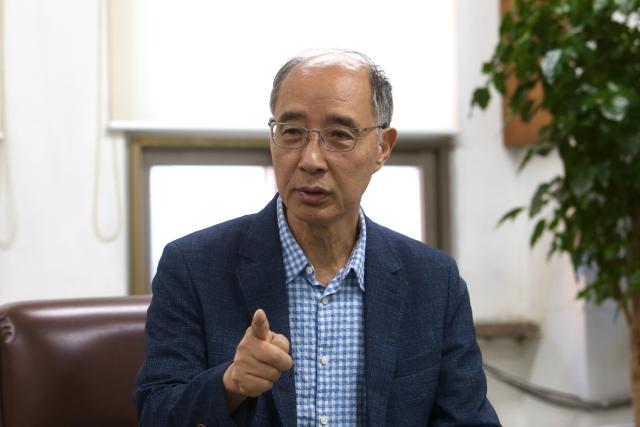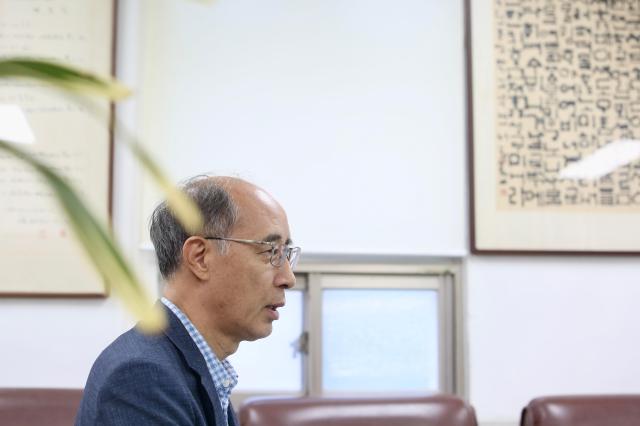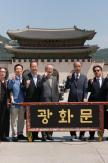
"Now is the best time to promote Hangeul, which is gaining traction worldwide, largely thanks to the resurgence of the Korean Wave," said Kim Ju-won, a professor emeritus at Seoul National University and president of the Korean Language Society in an interview with AJP in central Seoul last month, just a few weeks ahead of the anniversary.
The scholar said Hangeul can be more widely used among those interested in K-pop, which generated approximately US$952 million in total revenues from the global market last year, according to state-run researcher Korea Culture and Tourism Institute.
Korean pop culture including TV shows and films has been enjoying a renaissance lately as it spreads further afield to markets in the U.S., Europe, South America and even Africa, with more foreigners coming to Korea to learn the language.
"There is a strong demand for learning Hangeul, as many foreign fans want to understand the lyrics of songs by boy band BTS and watch Korean soaps such as Netflix' hit Korean series 'Squid Game' without subtitles," Kim said.
He added that most native English speakers used to feel no need to learn Korean due to English's global supremacy as the most universal language, but K-pop acts like BTS and BLACKPINK have dramatically changed that.
According to language-learning app Duolingo, the number of its users learning Korean as a second language stood at 17 million as of June this year, up 95 percent compared to two years ago. The increase has led Korean to rank fourth among the most popular languages, following Spanish, French, and Japanese.

A closer look at recent statistics might surprise his friend. The King Sejong Institute, an agency responsible for promoting Korean language and culture overseas, has seen a remarkable surge in enrollment. The number of students there increased from 740 in 2007 to a staggering 216,226 in 2023. The number of people taking the Korean language proficiency test TOPIK also rose from 149,000 in 2010 to 275,000 in 2023.
Is Hangeul really easy for foreigners to learn? He firmly said, "Yes," explaining that the Korean alphabet is a unique and distinctive writing system, with a structure that clearly distinguishes consonants from vowels.
"Unlike many other writing systems, such as the Roman alphabet, where a single letter can have multiple pronunciations due to its long history of linguistic evolution, each letter in Hangeul corresponds to a specific sound, making it easier for learners to spell and pronounce words accurately."
"This phonetic nature allows Hangeul to be adapted to write foreign words more easily than other writing systems," he elaborated.
That is why a minority group with a population of 90,000 living on the southern tip of Buton Island in Indonesia, the Cia-Cia tribe adopted Hangeul as their official script in 2008 as their native language lacks a writing system. There are around 700 indigenous local languages spoken in Indonesia, most of which do not have their own writing systems.
Kim, who played a crucial role in the process, stressed that Hangeul was a perfect fit for the tribe to utilize in preserving their native language. "A Korean who had no idea about the tribe's indigenous language was able to start reading a local children's book written in Hangeul."
He now hopes to extend the use of Hangeul to more minor ethnic groups around the world that do not have the means to write their local languages. Part of his plans is already underway, as postgraduate students at Seoul National University have been analyzing over 30 tribal languages, including Yoruba from southwestern Nigeria and Aymaran from the central Andes of South America, to determine the best way to adopt Hangeul.
"Hangeul is already connecting those who want to learn more about Korea," he said. "I believe it can do more in the future."
Copyright ⓒ Aju Press All rights reserved.



